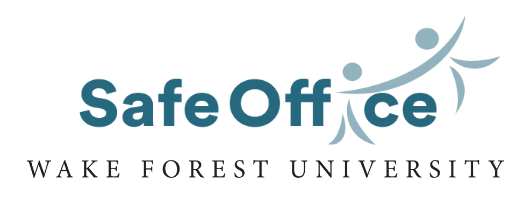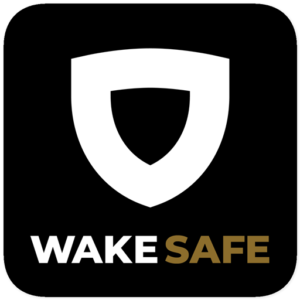What is Image-Based Sexual Abuse (IBSA)
Image-Based Sexual Abuse (IBSA), also often referred to as non-consensual intimate imagery (NCII), occurs when sexually explicit or intimate images or videos of an individual are created, distributed, or threatened to be distributed without their explicit, free, and ongoing consent. This deeply harmful act represents a profound violation of privacy, trust, and personal autonomy. It can inflict severe emotional, psychological, and social distress upon those who experience it. The Safe Office understands the severity in which individuals can be affected and is committed to assisting students with processing experiences and navigating reporting options.
Common Forms of IBSA
Click each term for the definition and an example
Distributing intimate images, often by a former partner, as an act of revenge or to cause harm.
Commonly referred to as “revenge porn”; however, the term “revenge porn” can be perceived as demeaning and misleading, as pornography actors are historically recognized as consensual participants who have approved of distribution.
Example: A former partner sharing intimate images with other people to evoke fear, embarrassment, or shame with the goal to manipulate or control the other person.
Using threats of sharing intimate images to blackmail or pressure someone into producing more sexual content or engaging in other acts.
Example: Demands of money or other goods/services or else intimate images will be shared, or using threats of sharing intimate images with family or friends to receive a desired outcome.
Recording intimate images of an unsuspecting person, often in public or private settings where there is an expectation of privacy.
Example: A person using smart glasses, mirrored shoes, hidden recording devices, or other ways of recording a person who is not consenting to being recorded.
Sharing intimate images of a person without their consent, even if the image was initially created consensually. The difference between ‘non-consensual photo sharing’ and ‘image-based sexual violence’ is the intent behind the action.
Example: Sharing intimate images through group chats, social media, flyers, etc.
Using artificial intelligence (AI) to create realistic but fake intimate images or videos of a person without their consent.
Example: Using AI to attach a known person’s face from a non-intimate photo or video to another person’s body to make it appear that individual is engaging in intimate acts.
Statistics
- 1 in 25 people will experience IBSA in their lifetime
- 10% of college/university students will experience IBSA during undergraduate studies
- LGBTQ+ individuals and BIPOC are at higher risk of experiencing IBSA
- Women are disproportionately targeted for IBSA, while men are more likely to specifically be targeted for sextortion
The Impact of IBSA
The consequences of IBSA can affect survivors’ mental health, social lives, and academic performance, such as:
Including fear, anxiety, depression, suicidal ideation, and post-traumatic stress.
Such as bullying, exclusion, victim-blaming, and damage to reputation.
Difficulty concentrating, withdrawal from typical activities, and potential career repercussions.
A deep sense of betrayal and loss of control over one’s own image and narrative.
Tips
- Do you have a concern that you or someone you know has experienced IBSA? Contact the Safe Office at 336.758.5285 or email us at safe@wfu.edu and request a consultation
- Use a platform such as StopNCII.org to create a copy of media before sending to encrypt it
- Change small details of media prior to sending, such as wearing a specific piece of jewelry or strategically placing an item in the background to assist in identifying who the exposure is linked to
- If experiencing this, document EVERYTHING possible and do not engage with the perpetrator directly
- Immediately report IBSA when seen online (e.g social media, pornography websites, group chats)
Resources
844-878-2274
Remove online nude, partially nude, or sexually explicit photos and videos taken before age 18.
Remove online nude, partially nude, or sexually explicit photos and videos taken at age 18 and older.
Provides specific examples of material considered as IBSA.
References
- Branch, L. W., Eaton, H., & Ruvalcaba, T. (2017). The Role of Sexting History and Impulsivity in Image-Based Sexual Abuse Victimization. Journal of Interpersonal Violence, 32(11), 1629-1647.
- Cyber Civil Rights Initiative. (n.d.). Home. Retrieved from https://cybercivilrights.org/
- DeKeseredy, W. S. (2021). Image-Based Sexual Abuse: Social and Legal Implications. Current Sexual Health Reports, 13(2), 70–76.
- Duggan, M., Smith, A., & Caiazza, A. (2017). Online harassment 2017. Pew Research Center. Retrieved from https://www.pewresearch.org/internet/2017/07/11/online-harassment-2017/
- Hellevik, P. M., Haugen, L. E. A., & Överlien, C. (2025). Outcomes of image-based sexual abuse among young people: a systematic review. European Journal of Psychotraumatology, 16(1).
- Henry, N., & Beard, G. (2024). Image-Based Sexual Abuse Perpetration: A Scoping Review. Journal of Interpersonal Violence, 25(5), 3981-3998.
- Henry, N., McGlynn, C., Flynn, A., Johnson, K., Powell, A., & Scott, A. J. (2024). Image-Based Sexual Abuse: A Study on the Causes and Consequences of Non-Consensual Nude or Sexual Imagery. Oxford University Press.
- McGlynn, C., & Rackley, E. (2017). Image-based sexual abuse. Oxford Journal of Legal Studies, 37(3), 534–561.
- National Sexual Violence Resource Center. (n.d.). Home. Retrieved from https://www.nsvrc.org/
- Powell, A., & Henry, N. (2017). Image-Based Abuse: A Threat to Privacy, Safety, and Speech. MediaWell (Social Science Research Council). Retrieved from https://mediawell.ssrc.org/research-reviews/image-based-abuse-a-threat-to-privacy-safety-and-speech/
- RAINN. (n.d.). Home. Retrieved from https://www.rainn.org/
- StopNCII.org. (n.d.). Stop non-consensual intimate image abuse. Retrieved from https://stopncii.org/

Need to leave the website quickly?
Safe Office
Need immediate assistance?
24/7 Confidential Support Line
Have a non-urgent question?
Visit Us!
Wake Safe App

